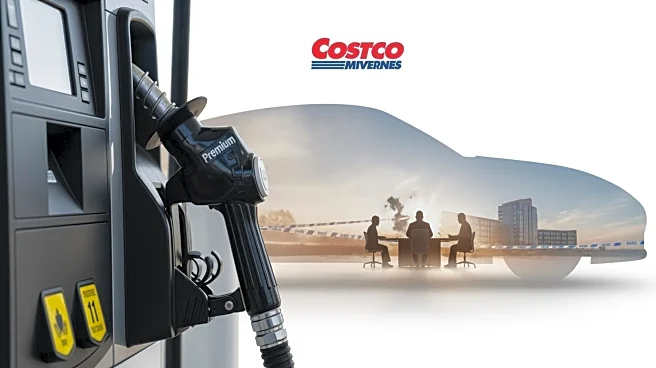What's Happening?
Costco's premium gasoline is typically rated at 91 octane, according to its Frequently Asked Questions page. This rating is crucial for high-performance vehicles, which require higher octane levels to prevent
engine detonation. While most cars operate on regular 87-octane fuel, vehicles with high compression or forced induction engines need octane ratings closer to triple digits. The difference between 91 and 93 octane can significantly impact engine performance, particularly for luxury cars like the Bugatti Chiron. At 91 octane, the Chiron's engine limits itself to 1,200 horsepower to avoid detonation, whereas 93 octane unleashes its full 1,479 horsepower potential. Costco's use of the term 'typically' suggests variability in octane ratings across different locations, necessitating research for owners of high-performance vehicles.
Why It's Important?
The octane rating of gasoline is critical for the performance and longevity of high-performance engines. Vehicles requiring higher octane levels may experience reduced performance and potential engine damage if fueled with lower octane gasoline. This issue is particularly relevant for owners of luxury and high-performance cars, who must ensure their vehicles receive the appropriate fuel to maximize performance and prevent costly repairs. The variability in Costco's octane ratings highlights the importance of consumer awareness and research when refueling high-performance vehicles. This situation underscores broader considerations in the automotive industry regarding fuel standards and consumer information.
What's Next?
High-performance vehicle owners may need to verify octane ratings at specific Costco locations to ensure optimal engine performance. This could lead to increased consumer demand for transparency in fuel ratings and consistency across gas stations. The automotive industry may respond by advocating for standardized fuel ratings and improved consumer information. Additionally, discussions on fuel efficiency and environmental impact may arise, influencing future fuel standards and industry practices.
Beyond the Headlines
The issue of octane ratings touches on broader themes of consumer rights and industry transparency. It raises questions about the ethical responsibilities of fuel providers to ensure accurate and consistent information for consumers. The environmental implications of high-octane fuels may also prompt discussions on sustainable practices within the automotive and fuel industries. This situation highlights the intersection of consumer advocacy, industry standards, and environmental considerations in shaping future policies and practices.









